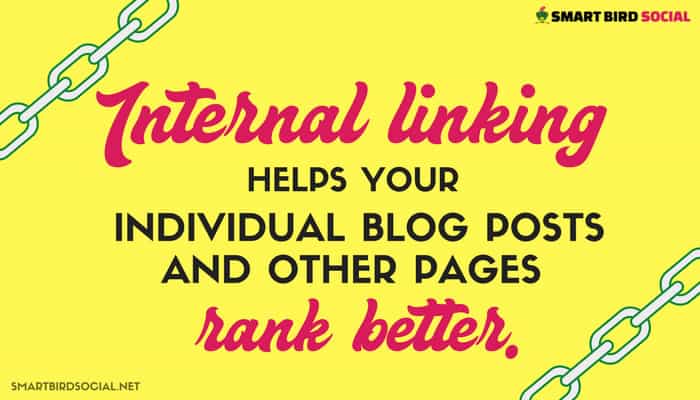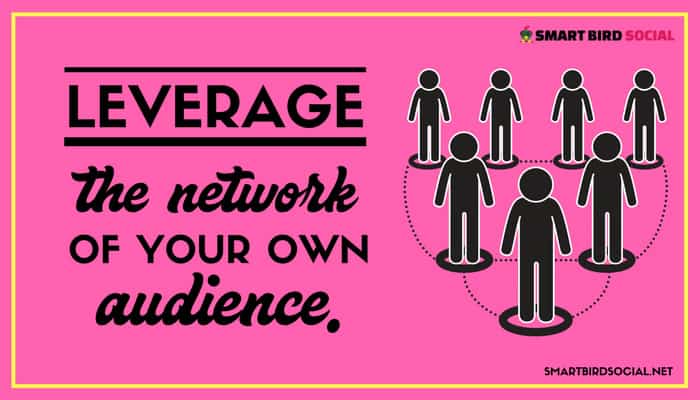Search engine optimization (SEO) increases your visibility, improves your branding, and, most importantly, drives traffic (aka visitors) to your website. But what is SEO blogging?
SEO blogging is blog content that is optimized for search engines.
Sure, writing from the heart and off the top of your head produces content that is usable. But, writing for humans AND optimizing for search engines improves your chances of the right people finding you online.
Most business owners today are able to recognize the importance of increasing online brand presence and visibility. A website without search optimization would be like a brick and mortar business without an address or a name on the door. There would be no way for customers to find you.
Think of your content as a lighthouse for the right people to find you, people who are looking for what you offer.
Blogging SEO benefits continually build your online presence and engage your audience with branded content. This makes both search engines and people happy because they are better able to find you online.
Blogging SEO Benefits – Five Reasons You Need to Start Writing
Blogs make up some of the most important content that you’ll put on your site. They’re more than just a vehicle for keywords. These are five of the best reasons why you should be blogging today, tomorrow, and for as long as you maintain an online presence.
SEO blogging increases site traffic & visibility while building your online presenceClick To Tweet1) Blogs Create Opportunities for Internal Linking
There’s no question that external links from trusted high ranking sites can improve your SEO, but did you know that internal linking is also important?
Internal linking helps your individual blog posts and other pages to rank better in SERPs. These internal links and relevant anchor text form a roadmap for Google, making it easy to understand the “full picture” of what you do, your services, and your offers.

Your home page is likely the page that receives the most traffic, and it is probably the best ranking in terms of targeted keywords. If you want to share some of that trust and authority with your other pages, then you’ll need a healthy collection of links between internal pages.
This doesn’t mean that you need to link to every page. You can create internal links for the important content or whenever a link would be relevant or valuable to your audience.
Internal linking doesn’t just improve SEO. It also helps to improve user experience by making your website easier to navigate. Use links in the body content of your blog to lead visitors to your other posts. A footer is also a valuable place for linking to other blog posts or pages on your website.
2) Blogs Can Produce Social Media Shares and Backlinks
The blogging benefits from social media shares are becoming increasingly important in terms of SEO. Social media networks like Facebook are already competing with search engines in some markets.
You know that tweets appear in Google search, which is a benefit of Twitter for small business. Facebook has improved indexing in recent years and is emerging as a competitive platform for local search. Social media is also used for business engagement, so it makes sense that generating shares on these platforms such as Twitter, Facebook, and LinkedIn will increase your inbound traffic.
Publishing blogs and sharing them on your social media account will help you to reach a wider audience while also triggering search signals. It doesn’t end there!

Incorporating a social sharing plugin into your website design generates shares directly from users on your posts. This continually expands your reach by leveraging the networks of your own audience. (Be sure to always be promoting your content via social media to get more traffic to your site.)
High-quality, longer-form blog posts generate backlinks from traditional sources like other blogs, forums, and special interest sites. The more high-quality websites that link to your content, the more popular and important your content becomes to Google.
Link building is critical to increasing your site’s ranking. So, it makes sense that the blogging SEO benefits include more backlinking and better ranking in SERPs.
3) More Content Means More Indexing
The benefits of blogging for SEO can be observed in the way that search engines like Google and Bing crawl your web page as it grows. The more pages you have, the more chances there will be for those search engines to pick up on your targeted keywords and start indexing your site.
The quality of the content matters! Modern algorithms look for pages that are rich in content and easy to read. Search engines and social sharing prefer long-form content. Investing in good, evergreen, in-depth content that is longer than 2000 words results in greater impact for your business.

As you grow your site with blog posts, you naturally increase your search rankings by providing fresh content to Google. The more content you have that is categorized by topic and structured by individual blog posts, the easier it is for search engines to crawl.
In fact, websites with blogs have 434% indexed pages. Search engines see sites with more content as more helpful and give these sites preference (aka higher ranking). Thus, blogging is one simple way to increase search visibility.
4) Blogging Allows You to Expand Your Targeted Keywords
Your core page content, such as your landing pages, About pages, and even product or service pages, can be limiting in terms of keyword density and variety.
Oversaturating your pages with keywords can be detrimental to your search ranking. Blogging offers you an important way to increase the number of times you can use your main keywords.
Regular blogging also allows you to start targeting more of the secondary keywords that expand your audience reach through search presence.
This allows you a significant amount of creativity, which can help as you try to keep your content fresh and original. Not only will you be able to target the most competitive keywords in your niche but also write blogs on topics that are complementary to your core audience. This could mean engaging with niche target audiences that you may have otherwise missed.
SEO blogging is blog content that is optimized for search engines.Click To Tweet5) Blogging Increases Engagement
High-quality blogs aren’t just about generating links, shares, and opportunities to rank for your keywords. SEO blogging helps bring traffic to your page, but it’s actual engagement and time spent on your web pages that generate leads and increase your brand’s position.
Average session duration, or the time that readers spend on your page, can have a positive impact on your SEO rating. This is why you’ll sometimes see relatively new sites with high search rankings. It’s all about engagement and how active your page is.

If you create quality content that attracts and retains site visitors, then you’ll be in a better position to climb in the search rankings and enjoy the benefits of increased traffic and brand exposure.
Blog for More Than Just an SEO Boost
Understanding the relationship between blogging and SEO benefits is just the first step.
The bottom line is that publishing blogs will always benefit your SEO, providing you are going about it in the right way. The trick is to not fall into the trap of only seeing blogs for their value in terms of search marketing. Blogs are a way to:
- directly engage your audience;
- create discussions and gain feedback through comments;
- launch products, competitions, or surveys;
- make your site more interactive;
- attract your ideal customer;
- boost your authority and influence.
Every blog should bring value to your audience, and you don’t always need to be selling something.
Sharing tips and strategies that serve the needs of your market can be a great way to build rapport and start cementing your authority within your niche. Product reviews, case studies, and even relevant news commentary are other ideas for blogs that will allow you to target a wide audience.
If you’re not blogging already, then you’re essentially stifling the growth of your own brand. Getting started is simple, and it helps if you have a passion for your industry and your work.
These blogging SEO benefits show that sharing your ideas and expertise pays off in the long run for both your business and for the people you’re trying to help. Blogging is one form of content marketing that provides many benefits, SEO and otherwise!
Before you start blogging, you may want to develop a few goals to determine your content. After you’ve been blogging for a while, don’t forget to measure your results to tweak your strategy as needed.
If you need help with your blogging, check out my blog writing services.

Awesome blog I ever read.
Thanks for your amazing tips on SEO and Blogging.
SEO is really very important for getting quality visitors and more eyeballs from top industry influencers…so we need to really focus on seo…
Thanks again.☺️☺️
Thank you Bishnu! SEO is important and ever changing, which means we always are learning. I appreciate your comments and compliment. 🙂
Meghan this information is so valuable. I was just having a discussion about this with my daughter. You made it really clear. I love the idea of internal links. My goal is to increase my blog posts so they are 2000 words. I thought that people were in a hurry and didn’t want to spend so much time on one site. What happens to blogs that have a video and few words I wonder.
Hi Candess! Good plan to have at least 2,000 words of value-packed, relevant content on your blog. Google will treat you better and your reach could expand since people tend to share longer posts more frequently. Some people post their video transcript or a summary on their blog with the video to reap the benefits of both mediums. Thanks for your comments!
These are great tips. I’ve been working on using internal links, and it’s working! YAY! I’ve also been focusing on long form content. I’m not the only writer on my blog, so some of it is shorter content, but what I put out there, I’m trying to aim to make it at least 1,000+. Thanks for the tips!
Great to hear this Jennifer!
I’m fairly oblivious to key words, but I can surely start implementing some of your advice, such as creating more internal links. I think if I keep hanging out here and reading your posts I will gradually absorb a bit of SEO savvy – thanks so much!
Oh no, Reba, you definitely want to incorporate keyword research into your blog posts. Maybe I’ll do a post about that! Thanks for the feedback.
Meghan,
Great tips and and right on target about trying to make content better for your clients and to gt more people to your site.
Lori
Thanks for being so clear and concise on the benefits of blogging – makes a lot of great sense.
I need to be much more cognizant of this. I’ve blogged for years, it serves a lot of purposes for me, creating content, testing interest, creating credibility and community. Thanks, I enjoyed your post.
As someone who has always written long blog posts, I am always so delighted to hear that the longer, the better when it comes to SEO. When I first started writing, I was actually only contributing to the HuffPost and their guidelines were 500-1,000 words. I never kept within that range and they still accepted my posts. I’ve been learning as I go about internal and external links and have been pleasantly surprised recently to have been ‘found’ by some interesting people and initiatives who found a specific blog post and reached out with the idea of possibly collaborating. I still have a long way to go, as I do not write with SEO in mind. I write with content and quality and ideas first. It’s nice to see that some of my instincts are actually now paying off…at least a little bit. Thanks for the insights, Meghan!
Excellent tips Meggie and right on point… quality content is added value to your website and search engines… which gives them reasons to come back to your website more often than 1x a year.. then longer blogs give you the opportunity to add more keywords while keeping your keyword density in check.. and as you mentioned, we want to keep readers on our website, so internal links helps them to stay there… superb blog Meghan!
As usual Meghan, your advice makes perfect sense. I started my blog just to make myself accountable for writing as I was letting other aspects of life stop me from doing this thing I love so much. Now it’s becoming connected to my work (I did that back-to-front, didn’t I?). I have finally come up with a way to turn the blog into a money making venture but it is going to take a lot of work to get there – all part of the fun.:)
I swear, Meghan, every time I read one of your posts, you cause me to feel better! Sometimes I wonder if all the work put into blogging does anything (I blog once a week on both my sites). You’ve just inspired me that it does! Thank you.
Ha, your comment made me laugh Susan! Happy to make you feel as if your efforts are not in vain. That’s so much better than me overwhelming you. 😉 The downside of blogging and content marketing, in general, is that it takes a long time to see results. One other item to note: I talk about this all of the time, but if you don’t have a way to monetize your blog visitors, it may make you wonder what all of the blogging work is for. 😉 Thanks for your feedback.